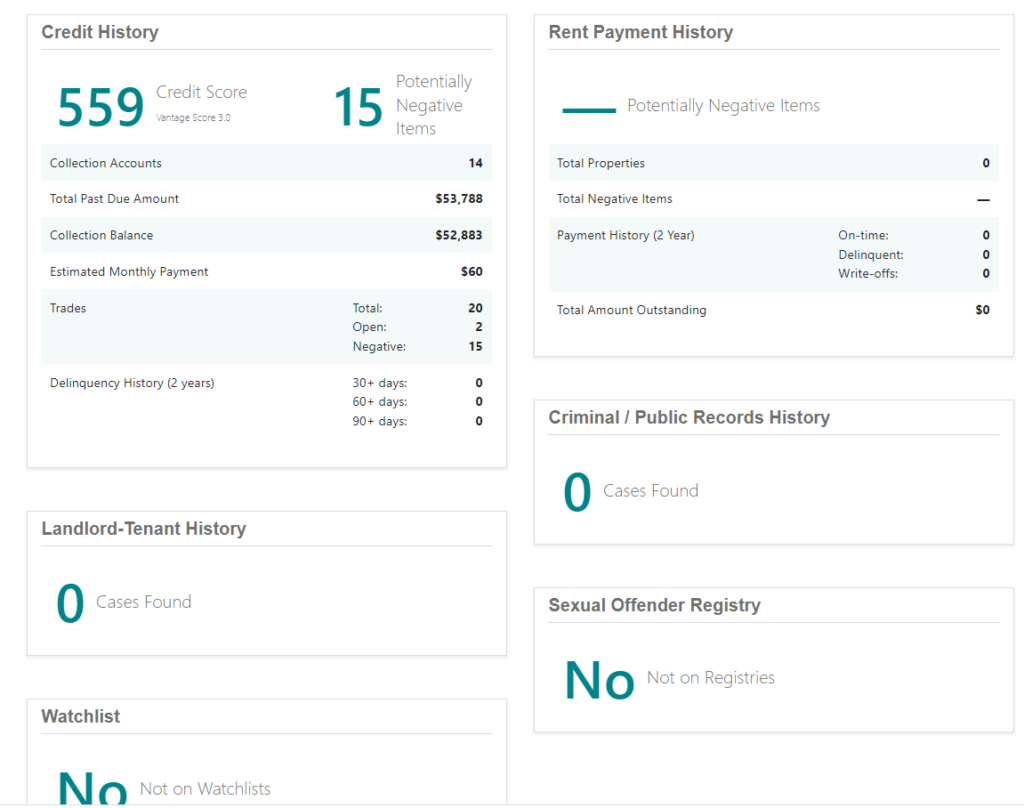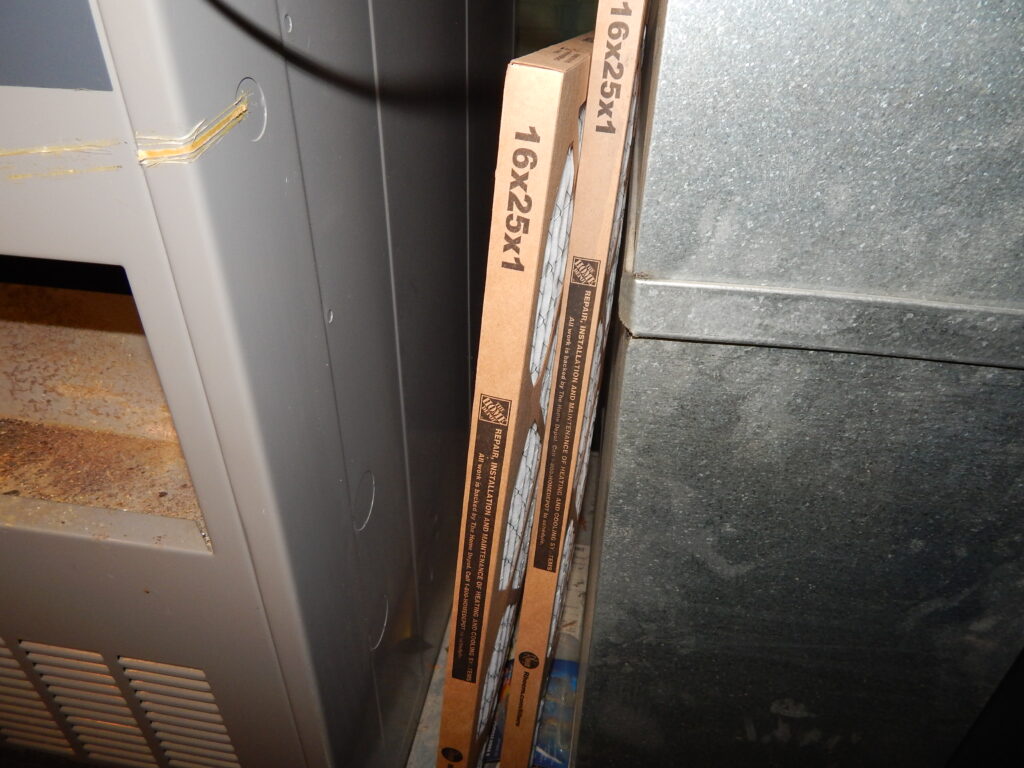by Debbie Vornholt | Apr 28, 2022 | Landlord

Finding a great tenant is the goal of every landlord but in order to determine if someone has the potential to be a great tenant, reading a credit report is something you have to learn to do.
Unfortunately, landlords find this process to be intimidating. I have seen a lot of different credit reports over the years and I have to agree that some of them are very difficult to look at and interpret. Finding a credit report that you like the look of and using the same credit report every single time makes reading a credit report a lot easier.
The issue that I have been running across a lot lately is that applicants are lying more than they used to. At least that is what I have found.
I pulled out a credit report that I just ran and I am going to talk about it. Obviously I can’t show you the entire report but I will go over the important things to look at. I pulled this one out on purpose because it is a little more complicated than your average situation.
Systems
There are some things that you need to know about me. I use systems for everything I do, including finding a new tenant. I have a pre-screening system that I use. The first thing that happens when someone wants to see a property is that I email them a pre-screening form to fill out. If they meet my guidelines, they get to tour the property and then apply. This allows me to sidestep anyone who tells me up front that they don’t meet my guidelines. I also only deal in facts. It is very easy to get derailed by someone who gets in front of you with a sad story. I don’t allow myself to involve emotions in this process. While I feel terrible for some of these people, I stick to facts!
This applicant first filled out the pre-screening form and appeared to meet the guidelines. He then toured the property, loved it and applied. Everything looked fine after reviewing the application. He had attached a document called “Income verification” and it wouldn’t open. I went ahead and ran credit and asked him to email me the document directly.
Property Details
- 3 bed, 2 bath property.
- Rent is $1,200
- Deposit is $1,200
- 3x the rent is $3,600
Requirements Stated On Application
- Income of 3x the rent.
- At least 12 months on job. Job history can meet this in many cases.
- At least 12 months of rental history. I require this for single family homes.
- Credit score of at least 600.
Information Provided By Applicant On Pre-Screening Form And Application:
- Stated Gross Monthly Income: $4,000
- Stated 2 years on job.
- Stated 2 years of rental history on pre-screening form.
- Stated credit score of 710. Further stated that he had excellent credit.
- Income statement attached but couldn’t open.
His Credit Report
- Credit score 559.
- Total debt: $53,788
- Debt in collections: $52,883
- Mostly student loans.
- Car payment behind 3 months.

Income Statement
- Was actually a letter of intent.
- Training Pay $18.22 per hour and $27.33 per hour OT.
- Once training is complete, promoted to recruiter.
- $865.38 base per week starting week 23.
- $45,000 annually.
ISSUES:
There are several issues with this applicant right off the bat.
- This person stated that he has been on this job for 2 years. That is inaccurate as he has attached a letter of intent dated April 22, 2022. It is April 28, 2022 as of right now. He hasn’t even started his training! Remember, he put that he was on his job for 2 years.
- The “income state” or proof of income is just a letter of intent with no pay stubs.
- The base training at $18.22 per hour is the pay for 13 weeks of the 26 weeks and isn’t income of 3x the rent.
- The credit score is below 600 which is stated in the online listing and the application.
- He has a large amount of student loans and a car payment in collections at this point. He hasn’t paid on the car in 3 months.
- I am also concerned with the large amount of debt in collections =>$42,883
- He doesn’t have any rental history at all. I asked him about it and he said he lived with family while in college.
This is one of those applicants that annoys me. He was very nice and I liked him. But, we started off on the wrong foot when he lied about his job history. Yes, those are strong words but I have a huge problem with any applicants who doesn’t tell the truth right off the bat. I asked him why he put that he had been on his job for 2 years and he said that he had signed a contract with them for 2 years. I told him that I considered this to be a lie since he hadn’t even started his job yet. He said “It was an honest mistake”. I didn’t see it that way. A letter of intent is not job history.
He had also put on the screening report that his credit score was 710 and actually said that he had excellent credit. I called him out on that also. He told me that he had never run his credit before and had just guessed. Someone told him that most landlords don’t run credit so he shouldn’t worry about it. He was shocked when I ran it and he saw how low his credit report was. He said that he intended to start paying on his student loans once he had a job.
He was also untruthful about his rental history. Again, he said he didn’t think that I would check.
I have a serious issue with any applicant who lies and will always disqualify them. They will only get worse as time goes on. The credit score also disqualified him for me because it was just too low. If you don’t believe in having a pass / fail credit score, have a way to mitigate your risk. I will accept down to 575 with an extra deposit and / or a co-signer.
His income is also an issue because in the beginning, he won’t meet the 3x the rent threshold for 13 weeks. Moving is expensive and he will have to put out a lot of money just to get in. Income is something that is always a pass / fail criteria because when you make exceptions, you can harm an applicant or tenant.
Rental Guidelines And Rental Criteria
I have guidelines and I make no apologies for having them and sticking to them. Following my rental guidelines and having rental criteria have saved me from renting to a lot of bad tenants. I don’t like chasing after tenants who don’t pay. Evictions make me angry! It means that I screwed up somehow by renting to a tenant. Bad tenants are usually not bad people but they do lack the skillsets to make them successful tenants.
My message is simple. Stop renting to bad tenants! Have rental guidelines and rental criteria and stick to them every single time. Run credit so that you know what you are getting into!
Want more landlord tips? Join my free Facebook Group ==>https://www.facebook.com/groups/commonsenselandlordingtipsandprocedures 
by Debbie Vornholt | Dec 9, 2021 | Landlord
There are a lot of things that tenants need to know when they move into a rental property that is a single family home. Taking the time to educate them will save you a lot of time, money and frustration. Do not assume your tenant knows where everything is or how to do even basic things. Assume that your tenant knows nothing and fill in the blanks.
Where Are The Main Water Shut Off And Gas Shut Off?
The main water shut off and the main gas shut off are something that every landlord and tenant needs to know the location of. I have had several cases over the years that involved tenants breaking off tub faucets or hose faucets and water just shooting out of the wall. They always call the office in a panic, usually after hours. This can cause terrible damage if no one knows where the water shut off is or it is not easily accessible. How many of your tenants are willing to crawl under the property to reach it? Not many!
One thing that I always recommend is that when you are renovating a rental property, make sure there is a main water shut off that is accessible. Older properties were not required to have one. It won’t do anyone any good if the main water shut off is at the street or in a crawl space somewhere under the house.
Be sure that you show the tenants where the main water shut off is located and clearly mark it. You can go online an purchase some cheap tags that say “Water Shut Off”. they come in a variety of colors. When you do a move in or a move out, make sure that you either place at tag on the main water shut off or verify that it is still there.
Remind all tenants of the “righty tighty, lefty loosey” saying so that they know how to turn it on and off. When the leave town for an extended period of time, it is a good idea to turn the main water off in case a line were to break. This stops the house from flooding.
Where Is The Furnace Filter?
When you have single family rental homes, the tenant should be expected to replace the furnace filter. It isn’t cost effective for the landlord to run over to the rental property every 30 days to change the furnace filter. During the move in inspection, show the tenant where the furnace filter is and demonstrate how to remove it and install a new one. Also consider writing the filter size in permanent marker on the duct work. Usually, I leave 2 or 3 extra furnace filters for the tenants to use.
Sump Pumps
Another thing that tenants need to know and understand is that sump pumps are there for a reason! To keep the house from flooding! Point out that it is plugged in and should remain plugged in at all times. The sump pump will run at all hours of the day and night. There is nothing that can be done about that and unplugging it is not an option. They are also not allowed to unplug it to save electricity. The cover should not be tampered with or removed.
How To Test The Smoke Detector
This may seem like a very basic thing but I have run across more than one tenant who has never tested a smoke detector before. If the smoke detector is very high, they won’t have any idea how to test it. Several years ago I decided to invest in some cheap 36 inch wood dowel rods from Home Depot and leave one in any house with a tall ceiling. I show the tenant how to use it to test the smoke detectors. Do I believe the stick will last forever? No. But, I did make the effort!
Grass And Leaves
Cutting the grass is something every tenant is expected to take care of in my single family homes. Tenants are also required to keep the weeds trimmed back at all times and pick up the leaves in the fall. Code enforcement is on the look out for uncut grass, tall weeds and leaves that have not been picked up. Citations with fines are issues in all of these cases. This is explained to my tenants and any fines are charged to them.
These are just a few of the things that tenants need to know. Some tenants will need a lot more training and others will already either know the basics. In some cases, you will run across a tenant who knows more than you do. I love when that happens!
Taking care of your asset is very important and it is well worth the time it takes to train someone to take care of it.
by Debbie Vornholt | Aug 30, 2021 | Landlord

Stop Your Rental Property From Being Stolen
It can be a huge relief to finally get your rental property ready to list and rent. It doesn’t matter if it has taken weeks or months to get to this point, you are ready to be done and get a new tenant into the property to pay the rent.
You craft the perfect rental listing ad, create an informational flier and get ready to get phone calls about the property.
Somewhere out there, someone sees your great listing online and steals it. They usually take the entire ad, lower the price and re-list it under their name. They start getting calls about the rental property instead of you.
This person usually uses a burner phone or better yet, only communicates via text or email. They tell the interested renter some story about how the previous tenant moved out and didn’t leave a key. The person who stole your listing tells the interested people to go drive by the house and see if they like it. If they do, this scammer tells them he will hire a locksmith to get them into the property once they sign the lease, wire the full security deposit and first month’s rent to them.
Some would be renters are smart and don’t fall for this. Other would be renters are desperate to find a place to live and don’t question it. They follow the directions of the scammer and unless you catch them in time, they move into YOUR property!
I personally know 4 landlords that this has happened to and I have heard of countless other landlords who fell victim to these scammers. These landlords are then left with someone who has moved into their property and they don’t have a lease with these people or the money the tenant paid to the scammer. The rental amount is usually about half of what the actual rent was and the people who moved in usually can’t afford the higher rent. Often, they have bad credit too.
The tenants who have been scammed don’t want to move because they signed a lease and paid the money to move in. If you are lucky, you can work something out with these tenants but that is usually not the case. Assuming you can’t work something out, the only recourse the landlord has it to take them to court and have them evicted. This takes time and there is no way to make these tenants pay you.
Tips To Prevent This From Happening To You
Over the years, I have had several of my listings stolen. It is very frustrating to say the least! But, luckily, I have never personally had to deal with someone who has actually moved into my listed property.
I got very pro-active and started making sure that the company name and all of my contact information is left all over the house.
- Create an information flier with company name, my name and all contact information.
- Tape my business card by every flier on the doors and windows.
- Also tape this information flier to every door and several windows on the inside of the house.
- Leave a stack of information fliers and business cards on the kitchen and bathroom counters.
- Leave business cards in a couple of the kitchen drawers and cabinets.
- State that the locks are not to be changed!
This so far, has stopped my listings from being stolen. I have received calls from a lot of interested people who said they talked, texted or emailed with so and so about this house (not me). They were told to go to the house and look around to see if they liked it. If they did, that person would get the lease to them. Usually, they were told the landlord was out of state so couldn’t be there to meet them personally.
Imagine their surprise when they show up and see the fliers all over the property. It also lists the correct rent amount so they call me, shocked that the price has usually doubled! Most of them are grateful that they didn’t get caught in this trap. Some try to negotiate the rental price down. Every so often someone is angry that they were mislead and they direct that anger at me!
However, because I had clearly stated who was renting the property and how to contact me, none of them signed the bogus lease and paid fees to someone who wasn’t me!
Also, my hope is that if a locksmith showed up to change the locks, they would call me before actually changing the locks. I make sure that the flier states that the locks are not to be changed.
These are some simple tips to help lower the chance that your rental listing will be stolen and rented to someone you did not approve.
There are no winners in a situation like these. Even the tenants have been scammed. They should have know that something that seemed to good to be true was too good to be true. But many of them are just too desperate to find a place to live and over look the weird vibes. Also, the scammers are usually very practiced and skilled at presenting a believable story.
I would be interested to hear if you all have any tips for helping to stop a listing from being stolen. Or, if you have become a victim to a situation like this, how did it turn out?
Want more tips on how to be a great landlord? Join my Facebook Group HERE.
by Debbie Vornholt | Aug 19, 2021 | Landlord

Is Your Vacant Rental Property Tenant Ready?
Getting your vacant property tenant ready before you show it is the fastest way to get your property rented. A vacant property can be a scary thing for any landlord. It can be easy to rush the process of getting your vacant rental ready for a new tenant. I know how tempting it can be to just go ahead and start showing the property before it is really ready to show. No one wants their property to sit vacant for too long.
There can be advantages to getting it listed and start getting people in to see the property. However, if the property is actually dirty from the previous tenant, I would caution against showing it. A tenant ready house will rent faster. Construction debris and dust are a lot different that a house that a previous tenant never cleaned and has previous tenant funk.
Hopefully you have properly listed the property and are only showing it to pre-screened parties. You should have a list of pre-qualified people to look at your rental home. This is your chance to get your house rented quickly.
Whether you are using a lock box or you intend to have an open house, prospective tenants first impression is very important. You only want them to have a good first impression. Hopefully, the property looks great on the outside and everyone oohs and aahs over it. But, that happiness will turn to dismay and disgust as soon as they walk inside if all they see is a dirty and grimy property because is isn’t tenant ready.
(more…)
by Debbie Vornholt | Aug 19, 2021 | Landlord

Pets In Your Rental Properties
Whether or not to allow pets in your rental is a very touch subject. When you have a property for rent, pets are something you need to bring up early in the conversation. Most everyone that I know loves pets and most of my friends have at least one pet. You will find that a large number of prospects will have pets as well.
Do You Allow Pets?
Landlords have mixed reactions when it comes to renting to someone that has pets which is very understandable. Some landlords allow pets and some do not. I know that pets can cause a lot of damage when they are destructive. Even pets that are well behaved can still cause unintentional damage.
Assume The Prospects Have Pets
Again, a large percentage of the people that we pre-screen seem to have pets and you severely limit your pool of potential tenants if you do not allow pets in your rental properties. One thing I do know is that tenants that have pets are usually very attached to them and they will just sneak them in if we said no to pets.
(more…)
by Debbie Vornholt | Aug 19, 2021 | Landlord

Rental Income Guideline
A rental income guideline is imperative for every landlord to have. Have you ever talked to a prospect and just loved them! They seem to check all of the rental criteria guidelines but one – the MOST important one.
The one guideline they don’t meet is the rental income guideline which is having income of 3x the rent.
For me, this is a Pass – Fail question. There is no wiggle room. If this prospect does not meet my income requirement of 3x the rent, I will disqualify this person.
Are you still with me? Yes, I know that it is pretty easy to sit here right now and tell you that. It seems drop dead easy to say and many of you may agree with me.
But, I am the first to admit that it can be really difficult to turn down a great prospect who doesn’t have the right income. If you are lucky enough to run across a prospect who is great in every way but the income requirement, you may be very tempted to just go ahead and rent to this prospect.
I mean after all, they are awesome! How can you turn someone like this down?
My response is, very easily.(and yours should be the same by the way).
You may think you are doing this prospect a favor by renting to them but you are not! By renting to someone who doesn’t meet the income qualification, you are basically taking away their financial stability.
Cost To Live
Every prospect needs a certain amount of money to live on every single month. You will quickly find that many of them do not know how much their lives cost on a monthly basis. Your rental income guideline can help them not make a terrible mistake. They may be doing great right now and seem worth taking a risk on. But when you add the rent, you may be sinking their financial boat and yours as well, because you all are now linked together.
Imagine you meet them and their financial history is like a well balance boat. What happens when you add too many bricks to that boat? It will get lower and lower in the water and will eventually sink. That is what will happen with someone that you approve when they don’t have income of 3x the rent. Their boat may float along just great for a little while but will eventually end up under water. These tenants will have been set up to fail.
Where Is The Cut Off?
The problem is, if you make an exception, where is the cut off? I have this discussion all the time with landlords who say, well, this prospect is only $25 short, $50 short, $100 short, etc. Again you already have a rental income guideline and if the applicant doesn’t meet it, where do you draw the line and tell this person that they don’t qualify? Is it $25, $50, $100 etc.?
Keep in mind that I manage a lot of properties and in some I have “inherited” the tenants. I have had tenants tell me that they can’t drive to my office because they only have $25 or $35 or $50 and they can’t afford to put gas in their vehicle until they get paid.
What seems like a minor amount of money to you, may mean the difference in a prospect eating or not.
Co-Signer And The Rental Income Guideline?
You may say well, what about a co-signer? My response is going to be that a co-signer doesn’t help someone pay. A co-signer is not going to guarantee that the person you rented to has enough money that month to cover the rent and all of the other expenses.
The co-signer is the fall back person when when your tenant doesn’t pay and you have another person to collect from. This person is really just an emergency back up plan. The co-signer is most likely not planning on chipping in on the rent every month to make up the deficit. Leases don’t really work that way.
Unless you are going to put in your lease that:
- Rent is $1,000.
- Tenant will pay $950 each month.
- Co-signer will pay $50 each month.
How many co-signers do you think will agree to this? I would wager that not many will. A co-signer doesn’t benefit the tenant when this person doesn’t have enough money to pay the rent every month. A co-signer doesn’t help your applicant meet your rental income guideline.
A co-signer is not really an option for someone who doesn’t make enough money.
Life Happens – Even After This Tenant Moves In
You have rental income guidelines for a reason. Stop and consider what would happen if this prospect wrecks a car, buys a new(er) car, has some hospital bills, etc. All normal things that happen in every day life. This prospect’s income deficit will only increase. When that happens, do you think you will get paid in full and on time every month?
Doubtful.
When that happens, it is the landlords fault. You – the landlord – have set this person up to fail. It may happen sooner or it may happen later but it will most likely happen.
This is not a rule that I will bend because it is not in the best interest of the prospect and it is also not in my best interests.
Remember that your decisions affect not just your life, but the lives of the people you either rent to or turn down.
Sometimes the kindest and best thing you can do is to tell this person that they are great, their credit is great, their job is great but they just don’t have the income and you can’t rent to them right now.
Memorize these words and use them often. “Company policy” requires income of 3x the rent.”
You can add any other words that you desire for empathy.
- “I am very sorry, but your income is not quite 3x the rent and company policy requires that. “
- “I am sorry but the income requirement is company policy I can’t make any exceptions.”
Remind them that it is in their best interests. I have had cases in the past where I was able to switch this person to another property. Then, down the road, when they earned more money, I was able to move them into a bigger property.
Your job is to put a tenant in the property who can pay the rent on time, every month in full. That isn’t going to reliably happen when someone doesn’t meet the very basic income requirement
Be sure and join the Commonsense Landlording Facebook Group for more tips. Join Here
![]()







